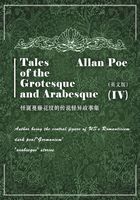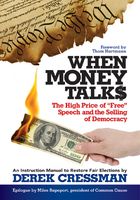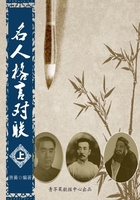Meanwhile the love-affairs between the middle-aged couple were prospering well, after a fashion; after the fashion that they liked best, although it might probably have appeared dull and prosaic to younger people. Lord Cumnor had come down in great glee at the news he had heard from his wife at the Towers. He, too, seemed to think he had taken an active part in bringing about the match by only speaking about it. His first words on the subject to Lady Cumnor were,—
'I told you so. Now didn't I say what a good, suitable thing this affair between Gibson and Clare would be! I don't know when I have been so much pleased. You may despise the trade of match-maker, my lady, but I am very proud of it. After this, I shall go on looking out for suitable cases among the middle-aged people of my acquaintance. I shan't meddle with young folks, they are so apt to be fanciful; but I have been so successful in this, that I do think it is a good encouragement to go on.'
'Go on—with what?' asked Lady Cumnor, drily.
'Oh, planning—You can't deny that I planned this match.'
'I don't think you are likely to do either much good or harm by planning,' she replied, with cool, good sense.
'It puts it into people's heads, my dear.'
'Yes, if you speak about your plans to them, of course it does. But in this case you never spoke to either Mr. Gibson, or Clare, did you?'
All at once the recollection of how Clare had come upon the passage in Lord Cumnor's letter flashed on his lady, but she did not say anything about it, but left her husband to flounder about as best he might.
'No! I never spoke to them; of course not.'
'Then you must be strongly mesmeric, and your will acted upon theirs, if you are to take credit for any part in the affair,' continued his pitiless wife.
'I really can't say. It's no use looking back to what I said or did. I'm very well satisfied with it, and that's enough, and I mean to show them how much I'm pleased. I shall give Clare something towards her rigging out, and they shall have a breakfast at Ashcombe Manor-house. I'll write to Preston about it. When did you say they were to be married?'
'I think they'd better wait till Christmas, and I have told them so. It would amuse the children, going over to Ashcombe for the wedding; and if it's bad weather during the holidays I'm always afraid of their finding it dull at the Towers. It's very different if it's a good frost, and they can go out skating and sledging in the park. But these last two years it has been so wet for them, poor dears!'
'And will the other poor dears be content to wait to make a holiday for your grandchildren? "To make a Roman holiday." Pope, or somebody else, had a line of poetry like that. "To make a Roman holiday,"'—he repeated, pleased with his unusual aptitude at quotation.
'It's Byron, and it's nothing to do with the subject in hand. I'm surprised at your lordship's quoting Byron,—he was a very immoral poet.'
'I saw him take his oaths in the House of Lords,' said Lord Cumnor, apologetically.
'Well! the less said about him the better,' said Lady Cumnor. 'I have told Clare that she had better not think of being married before Christmas; and it won't do for her to give up her school in a hurry either.'
But Clare did not intend to wait till Christmas; and for this once she carried her point against the will of the countess, and without many words, or any open opposition. She had a harder task in setting aside Mr. Gibson's desire to have Cynthia over for the wedding, even if she went back to her school at Boulogne directly after the ceremony. At first she had said that it would be delightful, a charming plan; only she feared that she must give up her own wishes to have her child near her at such a time, on account of the expense of the double journey.
But Mr. Gibson, economical as he was in his habitual expenditure, had a really generous heart. He had already shown it, in entirely relinquishing his future wife's life-interest in the very small property the late Mr. Kirkpatrick had left, in favour of Cynthia; while he arranged that she should come to his home as a daughter as soon as she left the school she was at. The life-interest was about thirty pounds a year. Now he gave Mrs. Kirkpatrick three five-pound notes, saying that he hoped they would do away with the objections to Cynthia's coming over to the wedding; and at the time Mrs Kirkpatrick felt as if they would, and caught the reflection of his strong wish, and fancied it was her own. If the letter could have been written and the money sent off that day while the reflected glow of affection lasted, Cynthia would have been bridesmaid to her mother. But a hundred little interruptions came in the way of letter-writing; and by the next day maternal love had diminished; and the value affixed to the money had increased: money had been so much needed, so hardly earned in Mrs. Kirkpatrick's life; while the perhaps necessary separation of mother and child had lessened the amount of affection the former had to bestow. So she persuaded herself, afresh, that it would be unwise to disturb Cynthia at her studies; to interrupt the fulfilment of her duties just after the semestre had begun afresh; and she wrote a letter to Madame Lefevre so well imbued with this persuasion, that an answer which was almost an echo of her words was returned, the sense of which being conveyed to Mr. Gibson, who was no great French scholar, settled the vexed question, to his moderate but unfeigned regret. But the fifteen pounds were not returned. Indeed, not merely that sum, but a great part of the hundred which Lord Cumnor had given her for her trousseau, was required to pay off debts at Ashcombe; for the school had been anything but flourishing since Mrs. Kirkpatrick had had it. It was really very much to her credit that she preferred clearing herself from debt to purchasing wedding finery. But it was one of the few points to be respected in Mrs. Kirkpatrick that she had always been careful in payment to the shops where she dealt; it was a little sense of duty cropping out. Whatever other faults might arise from her superficial and flimsy character, she was always uneasy till she was out of debt. Yet she had no scruple in appropriating her future husband's money to her own use, when it was decided that it was not to be employed as he intended. What new articles she bought for herself, were all such as would make a show, and an impression upon the ladies of Hollingford. She argued with herself that linen, and all underclothing, would never be seen, while she knew that every gown she had, would give rise to much discussion and would be counted up in the little town.
So her stock of underclothing was very small, and scarcely any of it new; but it was made of dainty material, and was finely mended up by her deft fingers, many a night long after her pupils were in bed; inwardly resolving all the time she sewed, that hereafter some one else should do her plain-work. Indeed, many a little circumstance of former subjection to the will of others rose up before her during these quiet hours, as an endurance or a suffering never to occur again. So apt are people to look forward to a different kind of life from that to which they have been accustomed, as being free from care and trial! She recollected how, one time during this very summer at the Towers, after she was engaged to Mr. Gibson, when she had taken above an hour to arrange her hair in some new mode carefully studied from Mrs. Bradley's fashion-book—after all, when she came down, looking her very best, as she thought, and ready for her lover, Lady Cumnor had sent her back again to her room, just as if she had been a little child, to do her hair over again, and not to make such a figure of fun of herself! Another time she had been sent to change her gown for one in her opinion far less becoming, but which suited Lady Cumnor's taste better. These were little things; but they were late samples of what in different shapes she had had to endure for many years; and her liking for Mr. Gibson grew in proportion to her sense of the evils from which he was going to serve as a means of escape. After all, that interval of hope and plain-sewing, intermixed though it was by tuition, was not disagreeable. Her wedding-dress was secure. Her former pupils at the Towers were going to present her with that; they were to dress her from head to foot on the auspicious day. Lord Cumnor, as has been said, had given her a hundred pounds for her trousseau, and had sent Mr. Preston a carte-blanche order for the wedding-breakfast in the old hall in Ashcombe Manor-house. Lady Cumnor—a little put out by the marriage not being deferred till her grandchildren's Christmas holidays—had nevertheless given Mrs. Kirkpatrick an excellent English-made watch and chain; more clumsy but more serviceable than the little foreign elegance that had hung at her side so long, and misled her so often.
Her preparations were thus in a very considerable state of forwardness, while Mr. Gibson had done nothing as yet towards any new arrangement or decoration of his house for his intended bride. He knew he ought to do something. But what? Where to begin, when so much was out of order, and he had so little time for superintendence? At length he came to the wise decision of asking one of the Miss Brownings to take the trouble of preparing all that was immediately requisite in his house, for old friendship's sake; and resolved to leave all the more ornamental decorations that he proposed, to the taste of his future wife. But before making his request to the Miss Brownings he had to tell them of his engagement, which had hitherto been kept a secret from the townspeople, who had set down his frequent visits at the Towers to the score of the countess's health. He felt how he should have laughed in his sleeve at any middle-aged widower who came to him with a confession of the kind he had now to make to the Miss Brownings, and disliked the idea of the necessary call: but it was to be done, so one evening he went in 'promiscuous,' as they called it, and told them his story. At the end of the first chapter—that is to say, at the end of the story of Mr. Coxe's calf-love, Miss Browning held up her hands in surprise.
'To think of Molly, as I have held in long-clothes, coming to have a lover! Well, to be sure! Sister Phoebe—' (she was just coming into the room), 'here's a piece of news! Molly Gibson has got a lover! One may almost say she's had an offer! Mr. Gibson, may not one?—and she's but sixteen!'
'Seventeen, sister,' said Miss Phoebe, who piqued herself on knowing all about dear Mr. Gibson's domestic affairs. 'Seventeen, the 22nd of last June.'
'Well, have it your own way. Seventeen, if you like to call her so!' said Miss Browning, impatiently. 'The fact is still the same—she's got a lover; and it seems to me she was in long-clothes only yesterday.'
'I'm sure I hope her course of true love will run smooth,' said Miss Phoebe.
Now Mr. Gibson came in; for his story was not half told, and he did not want them to run away too far with the idea of Molly's love-affair.
'Molly knows nothing about it. I haven't even named it to any one but you two, and to one other friend. I trounced Coxe well, and did my best to keep his attachment—as he calls it—in bounds. But I was sadly puzzled what to do about Molly. Miss Eyre was away, and I couldn't leave them in the house together without any older woman.'
'Oh, Mr. Gibson! why did you not send her to us?' broke in Miss Browning. 'We would have done anything in our power for you; for your sake, as well as her poor dear mother's.'
'Thank you. I know you would, but it wouldn't have done to have had her in Hollingford, just at the time of Coxe's effervescence. He's better now. His appetite has come back with double force, after the fasting he thought it right to exhibit. He had three helpings of blackcurrant dumpling yesterday.'
'I am sure you are most liberal, Mr. Gibson. Three helpings! And, I daresay, butcher's meat in proportion?'
'Oh! I only named it because, with such very young men, it's generally see-saw between appetite and love, and I thought the third helping a very good sign. But still, you know, what has happened once, may happen again.'
'I don't know. Phoebe had an offer of marriage once—' said Miss Browning.
'Hush! sister. It might hurt his feelings to have it spoken about.'
'Nonsense, child! It's five-and-twenty years ago; and his eldest daughter is married herself.'
'I own he has not been constant,' pleaded Miss Phoebe, in her tender, piping voice. 'All men are not—like you, Mr Gibson—faithful to the memory of their first love.'
Mr. Gibson winced. Jeanie was his first love; but her name had never been breathed in Hollingford. His wife—good, pretty, sensible, and beloved as she had been—was not his second; no, nor his third love. And now he was come to make a confidence about his second marriage.
'Well, well,' said he; 'at any rate, I thought I must do something to protect Molly from such affairs while she was so young, and before I had given my sanction. Miss Eyre's little nephew fell ill of scarlet fever—'
'Ah! by-the-by, how careless of me not to inquire. How is the poor little fellow?'
'Worse—better. It doesn't signify to what I've got to say now; the fact was, Miss Eyre couldn't come back to my house for some time, and I cannot leave Molly altogether at Hamley.'
'Ah! I see now, why there was that sudden visit to Hamley. Upon my word, it's quite a romance.'
'I do like hearing of a love-affair,' murmured Miss Phoebe.
'Then if you'll let me get on with my story, you shall hear of mine,' said Mr. Gibson, quite beyond his patience with their constant interruptions.
'Yours!' said Miss Phoebe, faintly.
'Bless us and save us!' said Miss Browning, with less sentiment in her tone; 'what next?'
'My marriage, I hope,' said Mr. Gibson, choosing to take her expression of intense surprise literally. 'And that's what I came to speak to you about.'
A little hope darted up in Miss Phoebe's breast. She had often said to her sister, in the confidence of curling-time (ladies wore curls in those days), 'that the only man who could ever bring her to think of matrimony was Mr. Gibson; but that if he ever proposed, she should feel bound to accept him, for poor dear Mary's sake;' never explaining what exact style of satisfaction she imagined she should give to her dead friend by marrying her late husband. Phoebe played nervously with the strings of her black silk apron. Like the Caliph in the Eastern story, a whole lifetime of possibilities passed through her mind in an instant, of which possibilities the question of questions was, Could she leave her sister? Attend, Phoebe, to the present moment, and listen to what is being said before you distress yourself with a perplexity which will never arise.
'Of course it has been an anxious thing for me to decide who I should ask to be the mistress of my family, the mother of my girl; but I think I've decided rightly at last. The lady I have chosen—'
'Tell us at once who she is, there's a good man,' said straightforward Miss Browning.
'Mrs. Kirkpatrick,' said the bridegroom elect.
'What! the governess at the Towers, that the countess makes so much of?'
'Yes; she is much valued by them—and deservedly so. She keeps a school now at Ashcombe, and is accustomed to housekeeping. She has brought up the young ladies at the Towers, and has a daughter of her own, therefore it is probable she will have a kind, motherly feeling towards Molly.'
'She's a very elegant-looking woman,' said Miss Phoebe, feeling it incumbent upon her to say something laudatory, by way of concealing the thoughts that had just been passing through her mind. 'I've seen her in the carriage, riding backwards with the countess; a very pretty woman, I should say.'
'Nonsense, sister,' said Miss Browning. 'What has her elegance or prettiness to do with the affair? Did you ever know a widower marry again for such trifles as those? It's always from a sense of duty of one kind or another—isn't it, Mr. Gibson? They want a housekeeper; or they want a mother for their children; or they think their last wife would have liked it.'
Perhaps the thought had passed through the elder sister's mind that Phoebe might have been chosen for there was a sharp acrimony in her tone; not unfamiliar to Mr. Gibson, but with which he did not choose to cope at this present moment.
'You must have it your own way, Miss Browning. Settle my motives for me. I don't pretend to be quite clear about them myself. But I am clear in wishing heartily to keep my old friends, and for them to love my future wife for my sake. I don't know any two women in the world, except Molly and Mrs. Kirkpatrick, I regard as much as I do you. Besides, I want to ask you if you will let Molly come and stay with you till after my marriage?'
'You might have asked us before you asked Madam Hamley,' said Miss Browning, only half mollified. 'We are your old friends; and we were her mother's friends, too; though we are not county folk.'
'That's unjust,' said Mr. Gibson. 'And you know it is.'
'I don't know. You are always with Lord Hollingford, when you can get at him, much more than you ever are with Mr. Goodenough, or Mr Smith. And you are always going over to Hamley.'
Miss Browning was not one to give in all at once.
'I seek Lord Hollingford as I should seek such a man, whatever his rank or position might be: usher to a school, carpenter, shoemaker, if it were possible for them to have had a similar character of mind developed by similar advantages. Mr. Goodenough is a very clever attorney, with strong local interests and not a thought beyond.'
'Well, well, don't go on arguing, it always gives me a headache, as Phoebe knows. I didn't mean what I said, that's enough, isn't it? I'll retract anything sooner than be reasoned with. Where were we before you began your arguments?'
'About dear little Molly coming to pay us a visit,' said Miss Phoebe.
'I should have asked you at first, only Coxe was so rampant with his love. I didn't know what he might do, or how troublesome he might be both to Molly and you. But he has cooled down now. Absence has had a very tranquillizing effect, and I think Molly may be in the same town with him, without any consequences beyond a few sighs every time she's brought to his mind by meeting her. And I've got another favour to ask of you, so you see it would never do for me to argue with you, Miss Browning, when I ought to be a humble suppliant. Something must be done to the house to make it all ready for the future Mrs. Gibson. It wants painting and papering shamefully, and I should think some new furniture, but I'm sure I don't know what. Would you be so very kind as to look over the place, and see how far a hundred pounds will go? The dining-room walls must be painted; we'll keep the drawing-room paper for her choice, and I've a little spare money for that room for her to lay out; but all the rest of the house I'll leave to you, if you'll only be kind enough to help an old friend.'
This was a commission which exactly gratified Miss Browning's love of power. The disposal of money involved patronage of tradespeople, such as she had exercised in her father's lifetime, but had had very little chance of showing since his death. Her usual good-humour was quite restored by this proof of confidence in her taste and economy, while Miss Phoebe's imagination dwelt rather on the pleasure of a visit from Molly.















